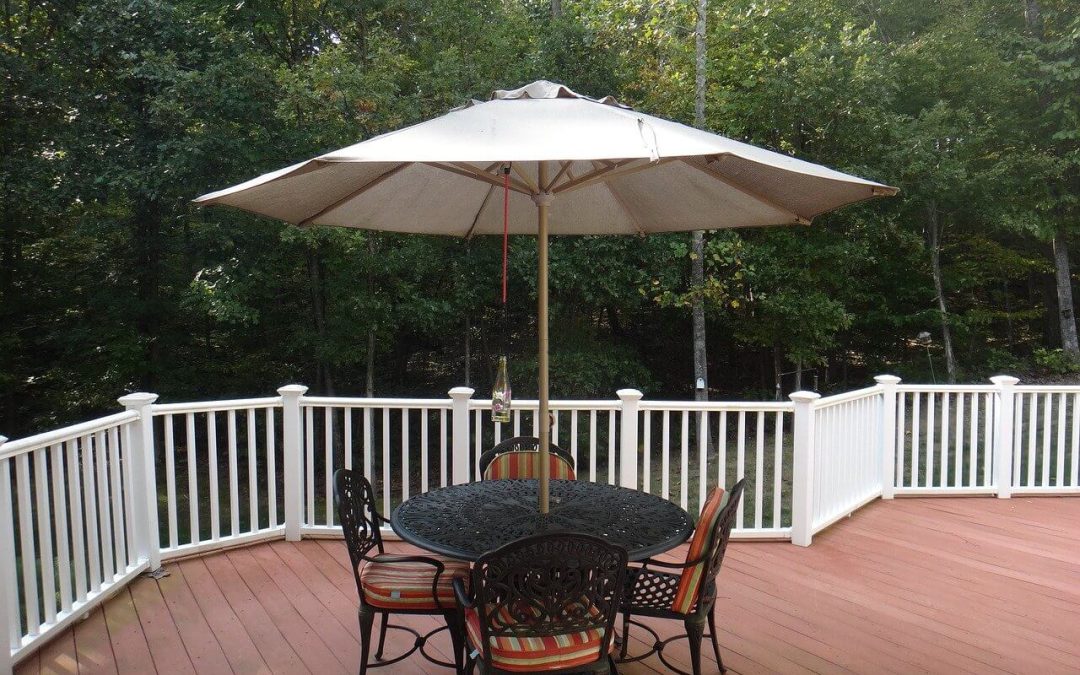A deck enhances your outdoor living space and adds value to your home. When designing a deck, one of the biggest considerations is the material from which you build it. Let’s look at the pros and cons of different types of decking materials.
5 Types of Decking Materials
Pressure-Treated Wood
If affordability is your top priority, pressure-treated wood may be the right choice for you. It’s usually made from pine, though other varieties are available. The wood is treated with chemicals that help it resist rot and insect damage. Pressure-treated lumber is easy to install compared to other types of decking materials.
The downside of using pressure-treated wood is the maintenance needed to keep your deck in good condition. It will need routine scrubbing or power-washing to keep it clean. This type of wood also needs to be sealed or painted every year. Even with the chemical treatment, the material will deteriorate over time.
Cedar or Redwood Decking Materials
Cedar and redwood have natural oils and tannins that help protect them against deterioration. These types of decking last longer than pressure-treated wood. The natural grain and texture of these woods make them some of the most attractive decking materials.
To keep a cedar or redwood deck looking good, pressure-wash it every year and apply a fresh coat of sealer every couple of years. If you want these materials to keep their color, experts recommend staining it. These woods are more expensive than pressure-treated pine.
Composite
Manufacturers have developed composite materials made from plastic or a plastic and wood combination. These composites are durable and long-lasting. They don’t splinter like wood and they won’t require painting, sealing, or staining to maintain their color.
Composite decking materials are usually more expensive than wood. The composites made from wood scraps will deteriorate over time and like wooden decks, mold and mildew can grow on this material. They require routine cleaning to prevent staining.
Aluminum Types of Decking Materials
For those who prefer a more modern deck, aluminum is a good choice. It offers an industrial aesthetic that’s not available from other types of decking materials. The aluminum won’t fade, doesn’t need to be sealed, and resists mold and mildew.
Aluminum is more expensive than other options. The metal can be noisy with footsteps or heavy rain. In wet conditions, aluminum decking is slippery.
Tropical Hardwood
If long-term durability is a top priority, tropical hardwood decking is a good choice. There are multiple species available such as Ipe, Cumaru, Tigerwood, and Garapa. They are strong and durable, with some lasting up to 50 years. You can get many types of tropical hardwoods from sustainable sources.
The downside to tropical hardwoods is the price and the difficulty in installing the material. You need to hire specialty installers to handle this dense and heavy material. These hardwoods also resist stains.
Rhode Island Real Estate Inspection Services offers home inspection services. Contact us to schedule an appointment in Rhode Island.

